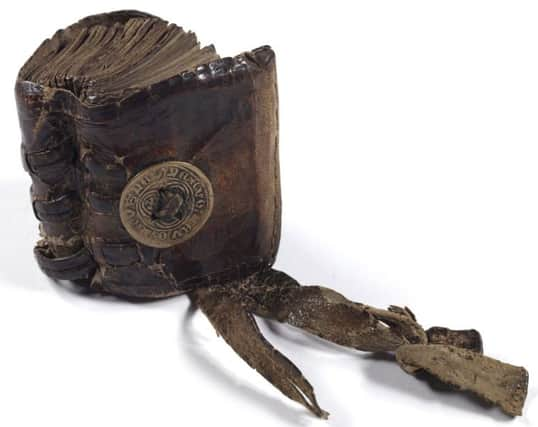Medieval manuscripts secure global heritage status for Gaelic


Manuscripts dating from the 14-18th century have been inscribed in a “Memory of the World” register of historically important documents.
The manuscripts, which are held at the National Library of Scotland in Edinburgh, are said to be the largest collection of late medieval Scottish Gaelic manuscripts anywhere in the world.
Advertisement
Hide AdThey have been collected in Edinburgh since the 17th century, initially by the Advocates Library, the forerunner of the National Library.
UNESCO instigate the “Memory of the World” initiative in 1992 in the wake of growing concern about the “parlous state” of preservation of historic documents around the world, and problems with looting and dispersal, illegal trading, destruction, inadequate housing and funding.
It already includes the First World War diary of Field Marshall Sir Douglas Haig, a huge archive of material linked linked to William Shakespeare and Sir Isaac Newton’s papers.
The Gaelic manuscripts collection recognised by Unesco includes medical manuscripts, poetry collections, historical texts, heroic tales, saints’ lives, prayers, charms, genealogy and “place-name lore.”
Dr Ulrike Hogg, Gaelic manuscripts curator at the National Library, said: “Only a small number of Gaelic manuscripts with a Scottish connection survive from this early period, and our collection of more than 60 volumes is unparalleled in its scale and coverage.
“The Gaels in Ireland and Scotland shared a rich learning and literary tradition, and our collection provides a fascinating Scottish perspective.
Advertisement
Hide Ad“Passages in Latin and occasional samples of texts in Scots or English also show how actively Gaelic Scots were engaged with multiple European cultures. We’re delighted to have these manuscripts listed register. It highlights their outstanding historical and cultural value.”
Matthew McMurray, secretary of the UK Unesco Memory of the World Committee, said: “These manuscripts offer a snapshot of Gaelic life in Scotland which would otherwise have been lost to history.
“Its scale and coverage make it the pre-eminent collection for study of Gaelic culture in Scotland.”